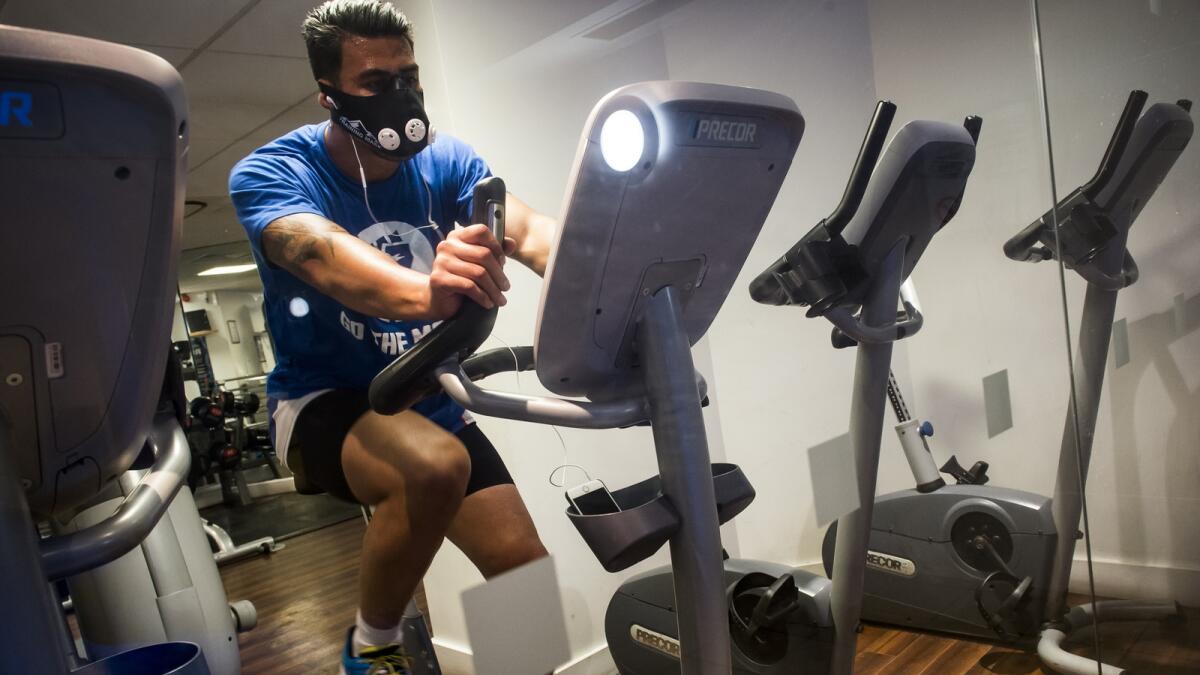The recent sudden death of a Canadian billionaire in Dubai due to suspected cardiac arrest after a workout has raised concerns among UAE doctors about the dangers of engaging in vigorous physical activities without a proper heart screening. The incident serves as a reminder that undiagnosed heart conditions can have fatal consequences, especially during or after intense workouts or competitive sports. According to doctors, such conditions can cause seemingly healthy individuals to collapse and die unexpectedly. This phenomenon has been observed in several cases of young people suddenly collapsing during sports or strenuous workouts, leading to serious health risks that require immediate attention and intervention to prevent fatal outcomes.
Medical studies have shown that excessive exercise, exceeding the recommended 150 minutes per week, can increase the risk of heart disease and sudden cardiac arrest. It is crucial to start gym activities gradually and avoid extreme strenuous activities from the beginning. Gym trainers should be trained in cardiopulmonary resuscitation and how to operate an automated external defibrillator to provide immediate assistance in case of emergencies. These precautions and measures can help ensure the safety of individuals during gym activities and prevent potential health risks.
Sudden cardiac arrest occurs when the heart abruptly stops beating, leading to a decrease in blood supply to the brain and causing the patient to lose consciousness. The most common cause of sudden cardiac arrest is a heart attack, which can result from a sudden blockage of blood supply to the heart. Other underlying heart conditions, such as cardiomyopathies or congenital syndromes, can also trigger sudden cardiac arrest in young athletes or individuals engaging in vigorous physical activity. It is essential to have a balanced physical activity routine and undergo regular health check-ups to detect and manage any risk factors at an early stage.
Individuals who are 40 years or older and plan to engage in intense gym activities must undergo a risk factor evaluation before starting their workouts. Risk factors such as uncontrolled diabetes, hypertension, high cholesterol, smoking, obesity, and sedentary lifestyles can increase the likelihood of heart disease and sudden heart attacks. It is advisable to consult with a doctor to control these risk factors before starting any intense physical activities. Engaging in regular physical activities, ensuring adequate sleep, reducing stress, and maintaining a healthy diet are essential preventive measures to reduce the risk of heart-related incidents during exercise.
Understanding the risk factors for heart attacks, such as smoking, high blood pressure, elevated cholesterol, diabetes, obesity, sedentary lifestyle, stress, insufficient sleep, and family history of heart disease, is crucial for prevention. The survival rate for out-of-hospital sudden cardiac arrest is alarmingly low, with less than 10% of patients surviving. Educating the public on basic CPR techniques and incorporating CPR training into school curriculums can significantly improve survival chances in the event of cardiac emergencies. It is important to be aware of these risk factors and take necessary precautions to maintain heart health and prevent sudden cardiac events during physical activities.


























